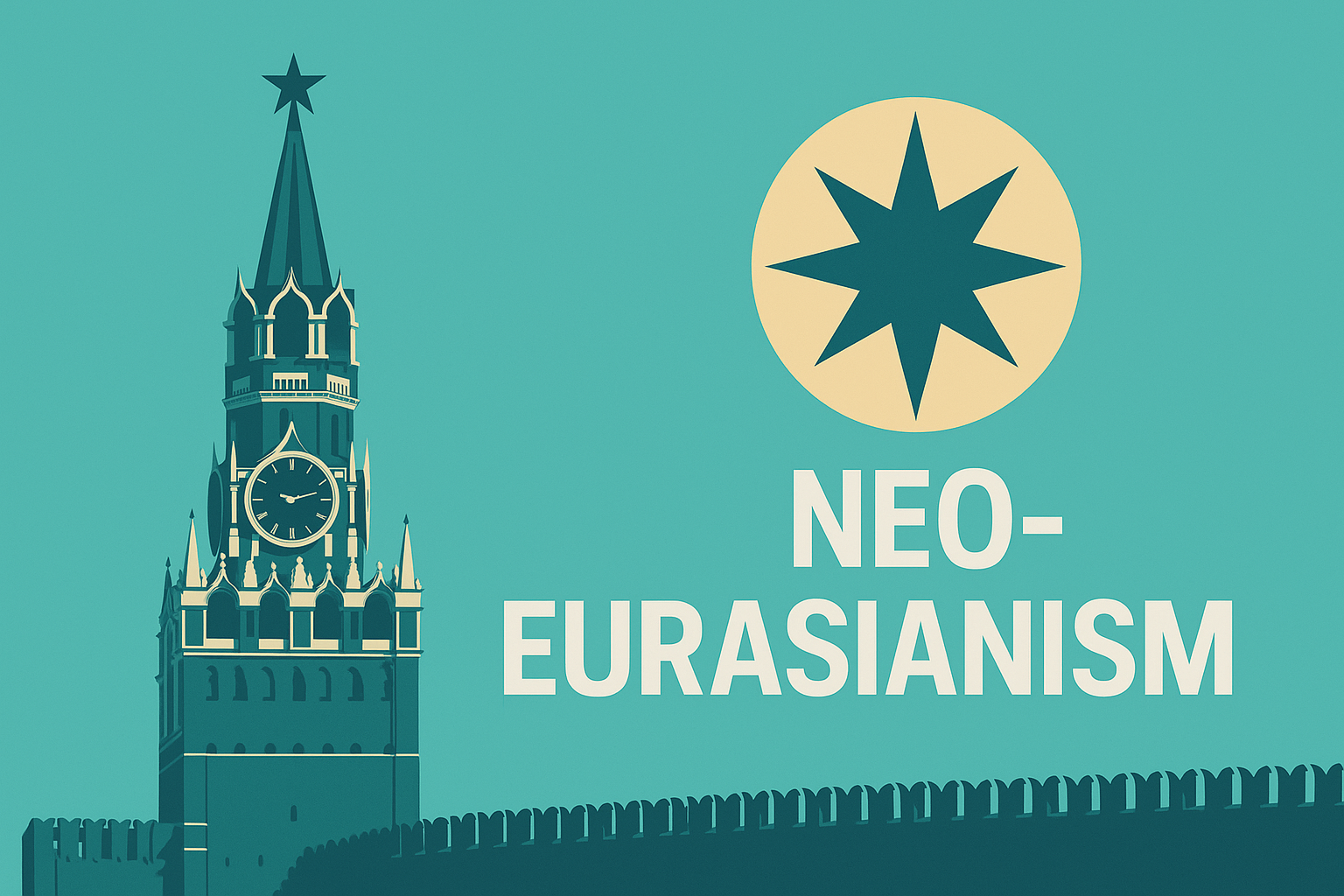― How Russia’s Imperial Ideology Challenges Global Order ―
- Introduction: Neo-Eurasianism as a New Geopolitical Logic
- Foundations and Strategic Intent of Neo-Eurasianism
- Evaluating the Validity of Neo-Eurasianism
- Geopolitical Risks and Global Lessons
- Implications and Strategic Response for Japan
- Conclusion: Neo-Eurasianism as a Strategic Reality, Not Just an Ideology
Introduction: Neo-Eurasianism as a New Geopolitical Logic
In the early 21st century, Russia has advanced a geopolitical ideology known as Neo-Eurasianism, presenting itself not as part of the West or the East, but as a distinct civilization rooted in the Eurasian landmass. It combines strategic geography, imperial nostalgia, and cultural identity into a comprehensive worldview that seeks to challenge the Western-led liberal international order.
This report analyzes the ideological structure, practical application, and global implications of Neo-Eurasianism, evaluating its validity and the geopolitical risks it poses.
Foundations and Strategic Intent of Neo-Eurasianism
Core Elements
| Element | Description |
|---|---|
| Spatial Logic | Centrality of the Eurasian landmass (land power vs. maritime power) |
| Ideological Axis | Western liberalism vs. Eurasian traditionalism |
| State Philosophy | The state as the nucleus of civilization; preference for imperial models |
| Historical Vision | Russia as the legitimate successor to Byzantium and the Soviet Union—“the Third Rome” |
Strategic Objectives
- Counter NATO expansion and reclaim historical spheres of influence
- Forge alliances with non-Western states based on shared civilizational values
- Present a civilizational alternative to Western democratic institutions and norms
Evaluating the Validity of Neo-Eurasianism
Ideological Validity
- Neo-Eurasianism offers a critique of Western-centric globalism and affirms a multipolar world order.
- However, it relies on subjective civilizational narratives to justify territorial ambitions, undermining international norms.
- The idea of civilization-based sovereignty, when prioritized over international law, lacks legitimacy in modern diplomacy.
Policy Validity
- Military aggression (e.g., Ukraine) has deepened mistrust among neighbors, isolating Russia rather than expanding its influence.
- Economic ambitions (e.g., Eurasian integration) have stalled due to sanctions and de-dollarization failures.
- Ironically, Russia’s pursuit of Eurasian independence has resulted in increased dependence on China, weakening its strategic autonomy.
Geopolitical Validity
- In theory, Russia can act as a strategic buffer among rising powers like China, Turkey, and India.
- In practice, its civilizational rhetoric undermines regional stability, discourages diplomatic dialogue, and fuels conflict.
- Neo-Eurasianism’s reliance on hard territorial control and imperial nostalgia appears outdated in the interdependent 21st century.
Geopolitical Risks and Global Lessons
| Risk Category | Description |
|---|---|
| 🌍 Risk 1: Return of Civilizational Conflict | Justifying war through religion, culture, and history (e.g., “Kyiv as the cradle of Rus”) |
| ⚖ Risk 2: Erosion of International Law | Sovereignty is overridden by historical or civilizational claims |
| 🔥 Risk 3: Struggles in Strategic Gray Zones | Central Asia, South Caucasus, the Arctic, and the Russian Far East become power vacuums |
| 🛰 Risk 4: Hybrid Warfare and Narrative Conflict | Strategic use of propaganda to reshape public opinion and destabilize adversaries |
Implications and Strategic Response for Japan
Key Insights
- Neo-Eurasianism parallels the civilizational state narratives promoted by China, Iran, and Turkey.
- Global conflict lines may shift from “liberalism vs. authoritarianism” to “institutional states vs. civilizational states”.
Strategic Recommendations for Japan
- Reinforce institutional diplomacy: Uphold international law and multilateralism
- Build semi-core coalitions: Deepen cooperation with ASEAN, India, and the EU
- Maintain Arctic and regional intelligence capabilities: Monitor geopolitical vacuums near Japan’s periphery
Conclusion: Neo-Eurasianism as a Strategic Reality, Not Just an Ideology
Neo-Eurasianism is not merely a fringe theory—it has become a functioning worldview embedded in Russian policy, military rhetoric, and media strategy. While it presents a coherent geopolitical logic, its reliance on violence, anti-Western populism, and historical revisionism renders its global legitimacy highly questionable.
Rather than confronting Neo-Eurasianism through military means, the international community must rebuild confidence in institutions and universal norms. In a post-hegemonic world, influence is no longer about domination, but about the persuasiveness of the order one proposes.


